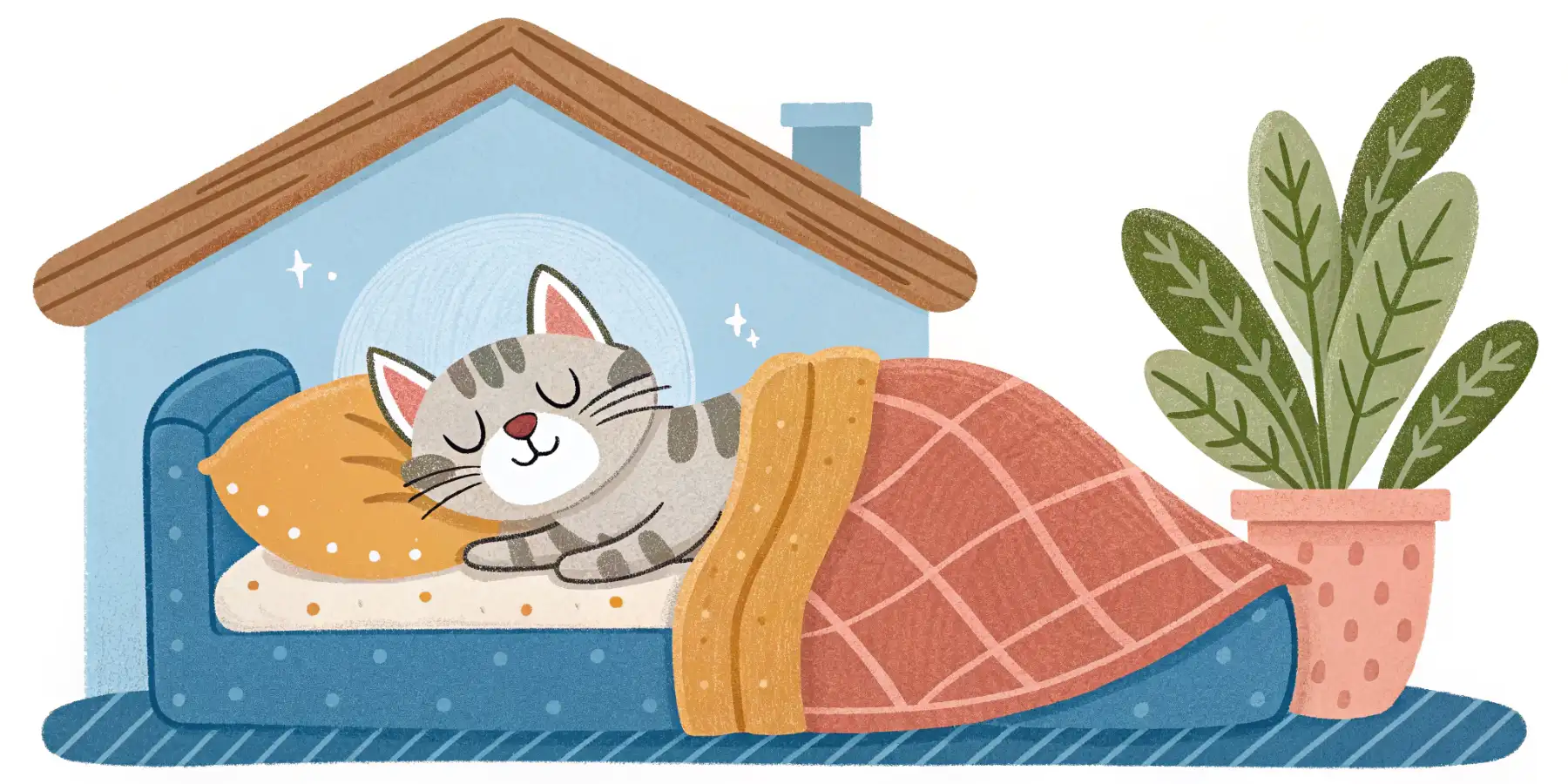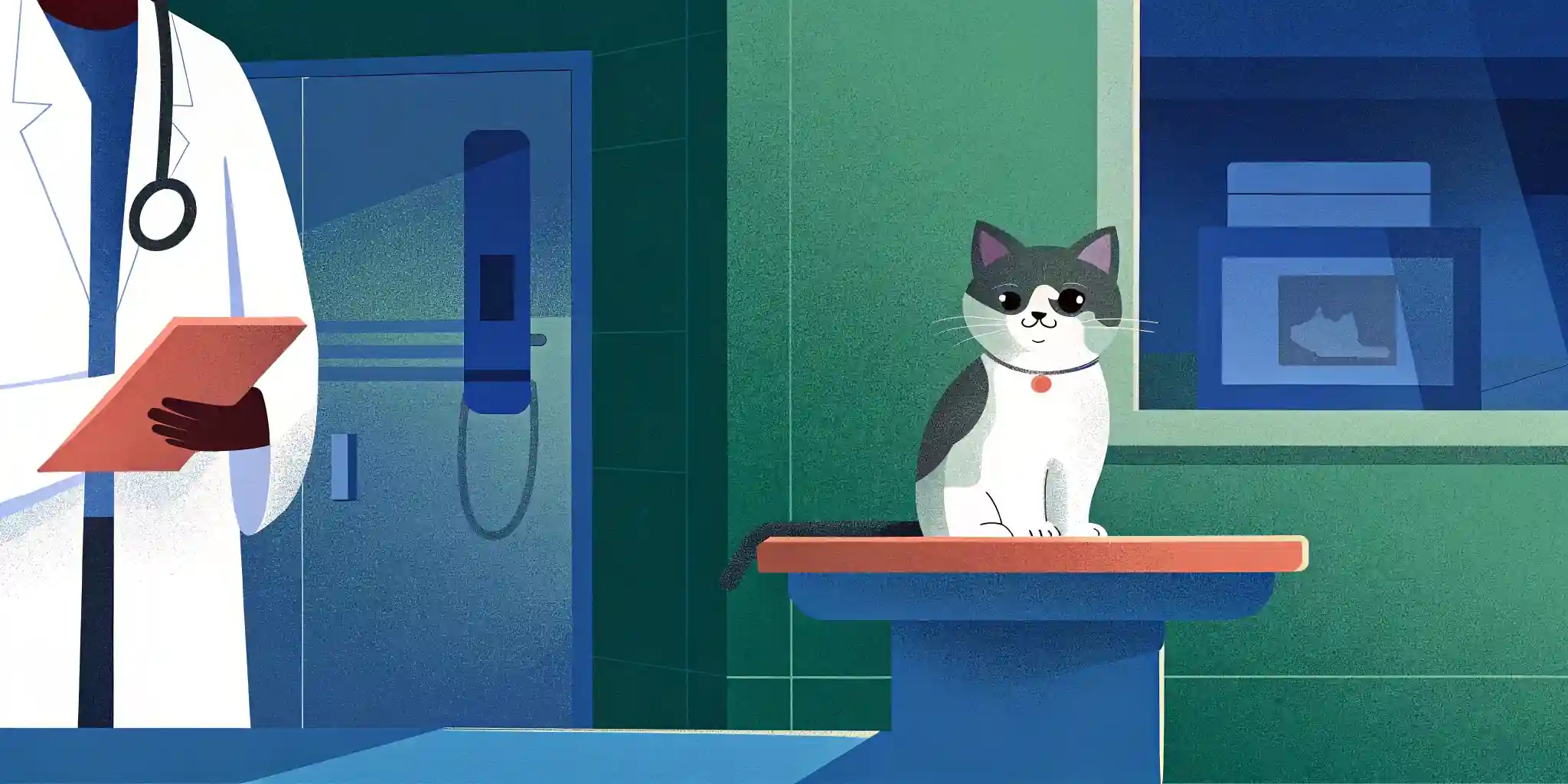
Kitten's First Vet Visit: What to Expect
Kitten's first vet visit? Learn what to expect! Health checks, vaccines, & questions to ask for a happy, healthy cat.
Your Kitten’s First Veterinary Visit: Health Checks and Essential Questions
Bringing a new kitten home is an exciting time! All those tiny paws, playful swats, and purrs are guaranteed to bring joy to your life. But amidst the cuddles and playtime, remember that your kitten needs proper veterinary care to ensure a long and healthy life. Your kitten’s first veterinary visit is crucial – it sets the foundation for their well-being and allows you to establish a relationship with a trusted vet.
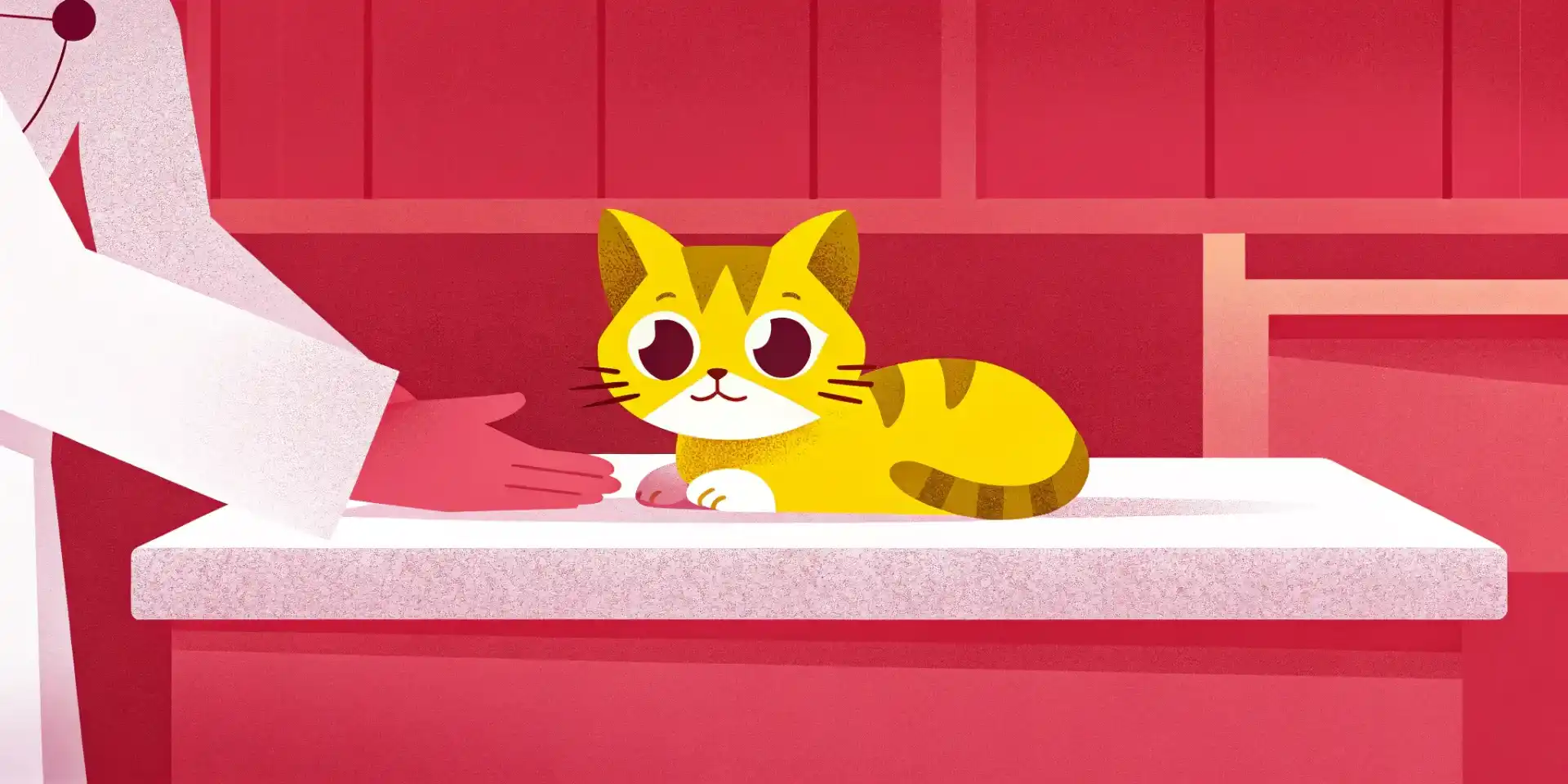 A veterinarian gently examines a fluffy kitten during its first wellness check.
A veterinarian gently examines a fluffy kitten during its first wellness check.
Why is the First Vet Visit So Important?
Think of your kitten’s first vet visit as a comprehensive health kick-off. It’s more than just a quick check-up; it’s an opportunity to:
- Establish a Baseline: The vet will assess your kitten’s overall health, noting their weight, temperature, heart rate, and respiratory rate. This provides a baseline for future comparisons, making it easier to detect any changes that might indicate a health problem.
- Detect Congenital Issues: Some kittens are born with health conditions that aren’t immediately apparent. The vet can identify these issues early, allowing for timely intervention and management. In my experience, early detection of heart murmurs in kittens can dramatically improve their long-term prognosis with appropriate medication and lifestyle adjustments.
- Parasite Prevention and Treatment: Kittens are often susceptible to internal parasites like worms and external parasites like fleas and ear mites. The vet can perform fecal tests to check for worms and recommend appropriate deworming medication. They can also prescribe flea and tick preventatives suitable for kittens.
- Vaccinations: Vaccinations are vital for protecting your kitten from potentially fatal diseases like feline distemper, feline calicivirus, and feline herpesvirus. The vet will create a vaccination schedule tailored to your kitten’s age and risk factors. This schedule usually involves a series of shots given a few weeks apart. Don’t skip the boosters! They’re essential for maintaining immunity.
What to Expect During the Examination
During the examination, the veterinarian will perform a thorough physical assessment. Expect them to:
- Check Eyes, Ears, and Nose: Looking for signs of infection, discharge, or abnormalities.
- Palpate the Abdomen: Feeling for any enlarged organs or masses.
- Listen to the Heart and Lungs: Assessing for any murmurs, arrhythmias, or respiratory issues.
- Examine the Skin and Coat: Checking for fleas, ticks, skin infections, or allergies.
- Check the Mouth and Teeth: Assessing for gum disease, dental abnormalities, or retained baby teeth.
- Weight and Body Condition: To determine if your kitten is at a healthy weight for its age.
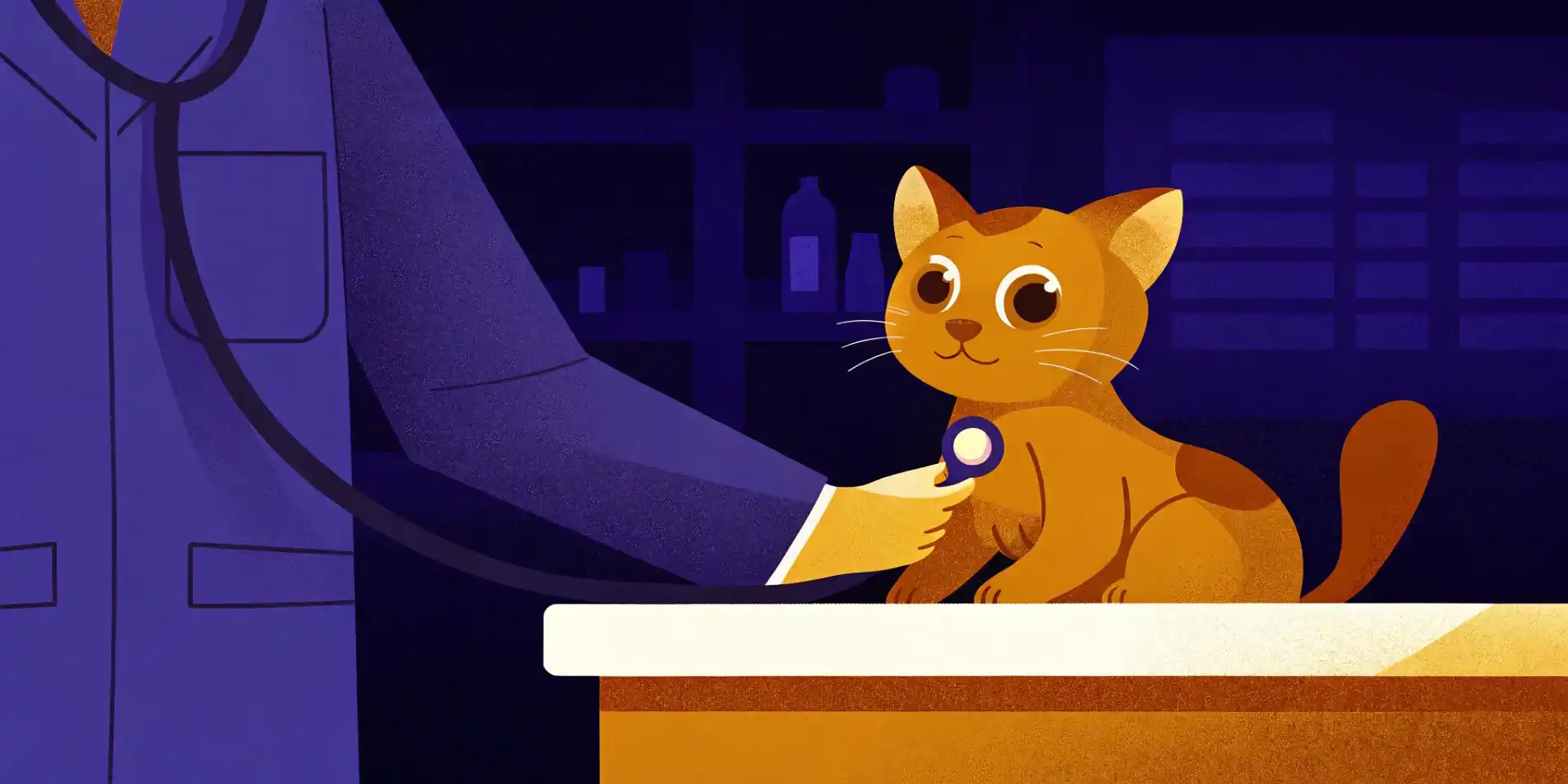 The vet carefully listens to the kitten’s heart and lungs using a stethoscope.
The vet carefully listens to the kitten’s heart and lungs using a stethoscope.
Essential Questions to Ask Your Veterinarian
The first vet visit is also your opportunity to ask questions and get expert advice on kitten care. Here are some essential questions to consider:
- What type of food do you recommend for my kitten, and how much should I feed them? This is a really important question! Optimal nutrition is key for kitten growth and development. I believe that feeding a high-quality kitten-specific food is well worth the investment. Ask about both wet and dry food options and how to properly transition your kitten to a new diet if needed.
- What is the best way to prevent fleas, ticks, and heartworms? Ask about the various preventative medications available and which ones are safest and most effective for kittens.
- When should I schedule my kitten for spaying/neutering? Spaying or neutering offers numerous health benefits and helps control the pet population. Discuss the optimal timing for this procedure with your vet. I often tell clients that spaying female kittens before their first heat cycle significantly reduces their risk of mammary cancer later in life.
- What are the signs of common kitten illnesses, and what should I do if I notice them? Knowing what to watch out for can help you catch problems early and seek prompt veterinary care. Ask about common issues like upper respiratory infections (“kitten colds”), diarrhea, and vomiting.
- How often should my kitten have follow-up vet visits? This will depend on your kitten’s individual needs, but typically kittens require a series of vaccinations and deworming treatments spaced out over several weeks.
- What are the best ways to keep my kitten entertained and mentally stimulated? Enrichment is important for preventing boredom and behavioral problems. Ask your vet for tips on providing appropriate toys, scratching posts, and playtime.
- What are signs of feline lower urinary tract disease (FLUTD) in kittens? While more common in adult cats, FLUTD can occur in young kittens.
- How can I tell if my kitten is experiencing pain, and what are my options for pain relief? Understanding feline body language and subtle signs of discomfort is crucial.
Preparing for the Visit
To make the first vet visit as smooth as possible, here are a few tips:
- Use a Carrier: Always transport your kitten in a secure carrier. This will protect them from escaping and keep them safe during the car ride. Get your kitten used to the carrier before the visit by placing treats and toys inside.
- Bring a Stool Sample: Collect a fresh stool sample (ideally from the same day) to allow the vet to check for intestinal parasites.
- Gather Information: Write down any questions or concerns you have beforehand, as well as your kitten’s vaccination and deworming history (if known).
- Stay Calm: Kittens can sense your anxiety, so try to remain calm and reassuring. Speak to your kitten in a soothing voice and offer them gentle petting.
- Choose the Right Clinic: Look for a veterinary clinic that is cat-friendly and has experience handling kittens. “Low stress handling” can make a big difference.
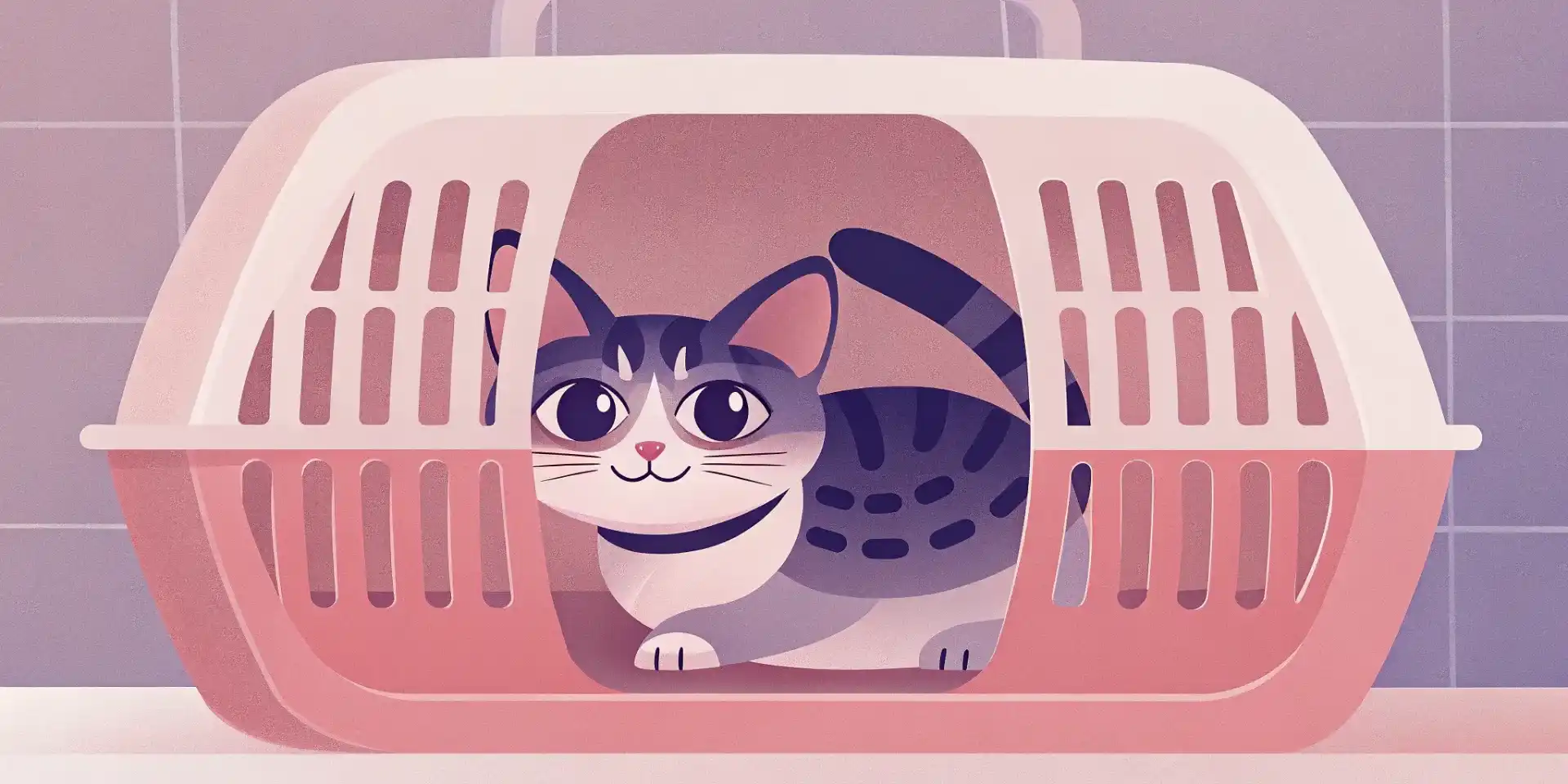 A content kitten rests comfortably in a pet carrier, ready for a trip to the vet.
A content kitten rests comfortably in a pet carrier, ready for a trip to the vet.
What to Do After the Visit
After the vet visit, follow your veterinarian’s instructions carefully. This may include administering medications, changing your kitten’s diet, or scheduling follow-up appointments. Monitor your kitten closely for any signs of illness or adverse reactions to medications. Don’t hesitate to contact your vet if you have any concerns. Remember, establishing a strong relationship with your veterinarian is one of the best things you can do for your kitten’s health and well-being. By being proactive and informed, you can help your kitten live a long, happy, and healthy life. If you notice any changes in your kitten’s behavior, such as decreased appetite or excessive sleeping, contact your veterinarian immediately.
Taking your kitten for its first veterinary visit is a significant step in ensuring a lifetime of health and happiness. By being prepared, asking the right questions, and following your veterinarian’s advice, you can provide your furry friend with the best possible start in life.
